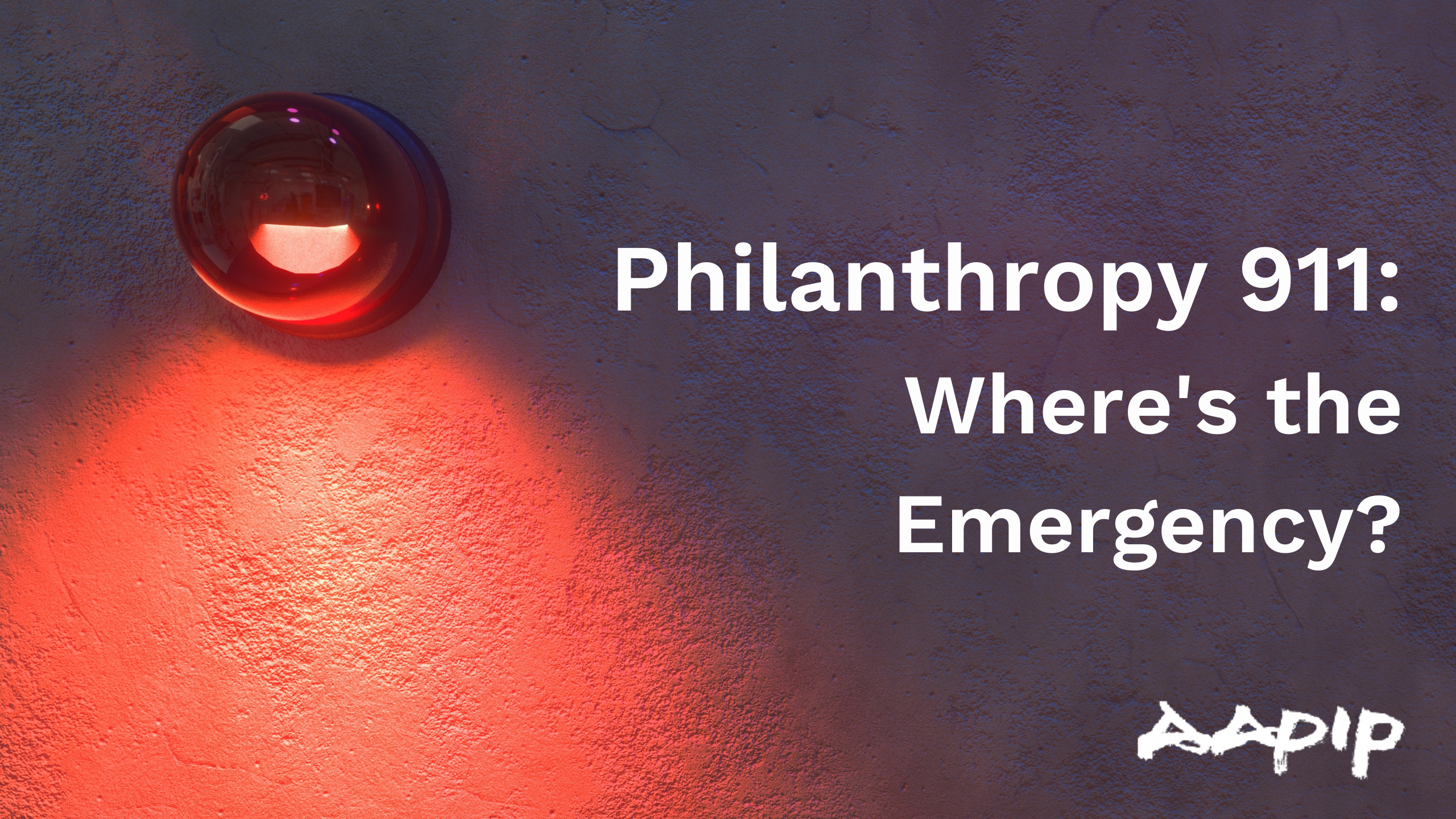“I watched the generation that was silenced and then
I watch a new generation coming up now that is fearless.”
-Linda Sarsour
9/11 was clearly a watershed moment, and, in 2001, philanthropy answered that call. Giving reached an unprecedented level to respond to the unimaginable horror unleashed on that day. There was an immediate outpouring of philanthropic support for victims of the 9/11 attacks and for reinvestment in the neighborhoods and businesses affected. A Foundation Center report, Giving in the Aftermath of 9/11: 2003 Update on the Foundation and Corporate Response noted that institutional donors represented 38 percent of an estimated $2.8 billion in total private 9/11-related giving with the largest support going to the September 11th Fund ($158 million) and the American Red Cross Liberty Disaster Relief Fund ($149 million).
However, with the bulk of support going to families and regions directly impacted by 9/11, the report made little to no mention of support going to Arab, Middle Eastern, Muslim and South Asian (AMEMSA) communities. We know that racial and religious discrimination of Arab, Middle Eastern, Muslim and South Asian (AMEMSA) communities reached all new levels. In those fear-based early years that publicly villanized AMEMSA communities, few foundations (with the exception of longtime supporters of civil and human rights) paid attention to AMEMSA communities experiencing hate violence, bullying, workplace discrimination and racial and religious profiling by government entities and in local communities.
Out of that era, AAPIP established the Civic Engagement Fund (CEF), a pooled fund for the Bay Area to invest in and increase the visibility of AMEMSA communities.
The first fund of its kind in the country, CEF offered an early and unique space for AMEMSA organizations to collectively mobilize, growing new generations of leadership at a time when few foundations dared to step in to support our communities.
AAPIP’s Civic Engagement Fund focused on building collective power within the AMEMSA communities for long-term community change, bringing together 16 organizations to create a shared analysis of issues affecting the AMEMSA communities and coordinate their efforts. The San Francisco Foundation served as an anchor partner with AAPIP and the learning community included the Wallace Alexander Gerbode Foundation, the Silicon Valley Community Foundation, the Y&H Soda Foundation, and the Whitman Institute. It also grew to include Silicon Valley Foundation, Rosenberg Foundation, The California Endowment, The Packard Foundation, Hewlett Foundation, and the Irvine Foundation.
CEF has since sunsetted in the region, and as AMEMSA communities grew across the country, the Rise Together Fund of Proteus (formerly known as Security & Rights Collaborative) was established in 2008 as the first national donor collaborative in the United States to bolster the critical work of AMEMSA organizations, followed by the Pillars Fund in 2010 to support Muslim organizations and leaders who advance social good, and in 2016, the American Muslim Community Foundation was founded to create Donor Advised Funds, Giving Circles, and build endowments for the American Muslim community. These are important efforts that add depth and breadth to the philanthropic sector, but it is only the beginning.
On this 20th anniversary, a new effort has emerged to evolve the sector’s response through a Call for Solidarity and Joint Investment in BAMEMSA Communities. The criminalization and dehumanization of BAMEMSA (Black, African, Arab, Middle Eastern, Muslim, and South Asian) communities is often justified under the guise of national security, but today is better understood within the context of the United States’ history of white supremacy, systemic racism, and gendered violence. 20 years later, there is a new emergency around threats to democracy. BAMEMSA communities are on the frontlines of voting rights and civic participation efforts alongside communities of color all across the country, in service of an inclusive and just democracy.
This Call to Action seeks to collectively raise $50 million over the next five years to support BAMEMSA communities. Already, we know that less than 20 cents to every $100 in philanthropy goes to Asian American and Pacific Islander communities, and this effort in support of BAMEMSA communities will be a great start to a new decade of racial equity grantmaking.
Philanthropy, it is again time to answer the call.

